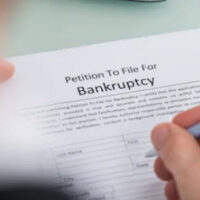Avoid These Problems Before You File for Bankruptcy

If you are thinking of filing for bankruptcy, your bankruptcy lawyer will have to look over your documentation, paperwork, and finances, to see if you can file, to determine what chapter bankruptcy is best, and to see if there’s anything in your documentation or finances that could cause problems in your bankruptcy.
While bankruptcy is not a “one size fits all” analysis, there are some general universal truths that anyone thinking of filing for bankruptcy should follow. Here are some general things to avoid if you think bankruptcy may be in your future.
DON’T transfer money, accounts or property out of your name – There are two instances where this happens. In one, the consumer purposely transfers money or property to a relative or to their business in order to “hide” it from the bankruptcy court. This is fraud, and can lead to your discharge being denied (among other problems it can cause).
The other scenario is when someone does something innocently—for example, closing a bank account, or transferring the title of a car to their child who has come of driving age. The consumer may have no intention of defrauding anyone, and may just be carrying on their daily affairs. Even if innocent, these kinds of transfers can lead to problems.
DON’T pay creditors (more than you normally would) – Paying some creditors more than you normally would can lead to problems in your bankruptcy. It can be seen as favoring some creditors over others, and can potentially lead to the bankruptcy trustee filing lawsuits against whoever received the money from you.
DON’T make unusual deposits into your bank accounts – The bankruptcy court will look at your last six months of income to determine your eligibility to file bankruptcy. That average can be skewed if a one-time deposit—such as an inheritance, a lawsuit payment, or an insurance payment—is made, skewing that average to an artificially high number.
DON’T do anything that would entitle you to money later on – The bankruptcy court can potentially take contingent assets – that is, money or property due to be paid to you – but that haven’t actually been paid yet (for example, if you file an insurance claim, and it is approved, but the money is not paid yet). The bankruptcy court can take money that is due and owing to you, but which you don’t actually have yet.
DON’T sue anyone (in a case where you could receive money damages) – Again, money that could be paid to you in a lawsuit is still property. The bankruptcy trustee could “take” your lawsuit and stand in your shoes and prosecute the lawsuit on your behalf if you could be entitled to money from a lawsuit.
Call the West Palm Beach bankruptcy lawyers at Kelley Kaplan & Eller at 561-264-6850 to discuss whether you are ready and able to file for bankruptcy.



